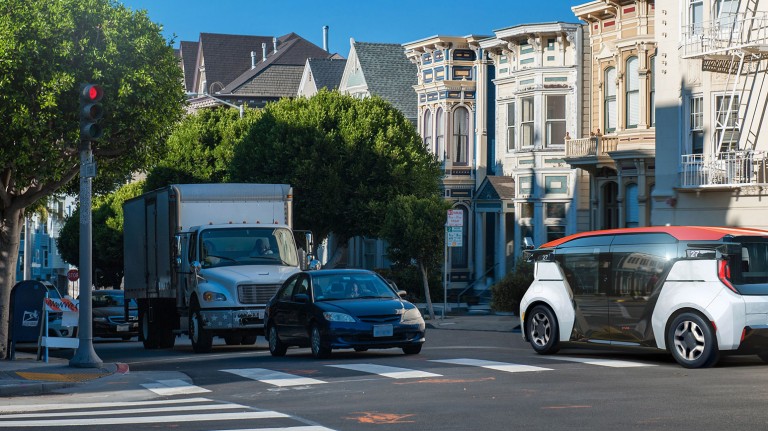It’s not going to be taking to the roads anytime soon, however.
The news: Cruise, the autonomous-car division of General Motors, has unveiled a futuristic electric vehicle called the Origin that completely does away with a human driver. It isn’t intended for private use. Instead, the idea is that one day people will be able to hail the car from their smartphones.
About the car: It’s roomy thanks to the lack of steering wheel, gear shaft or pedals, with space for six passengers sitting on opposite benches. The car doors are opened by a code.
Great, when will it hit the roads? Ah, yes, about that. The car won’t be on a street near you any time soon, I’m afraid. Although Cruise claims it will start testing the Origin in San Francisco “in the near future,” it has a lot of regulatory hurdles to clear first. In 2018, the company applied for an exemption to Federal Motor Vehicle Safety Standards, regulations that it requires to test the car on the roads. It hasn’t been granted that yet, and it doesn’t have local state approval either. Cruise also hasn’t said how many vehicles it plans to manufacture, or whether it’s started testing the vehicle on a private track. Hmm.
And there's the tech hurdle: Cruise will also need to prove the software and sensors the Origin will need to safely navigate the very complex environment of a city, at a time when expectations for self-driving cars have cooled. And it faces stiff competition from the likes of Waymo, which is already testing fully driverless minivans in Phoenix, Arizona, and Ford, which has promised to launch an autonomous taxi service in Austin, Texas, next year.
Sign up here to our daily newsletter The Download to get your dose of the latest must-read news from the world of emerging tech.

